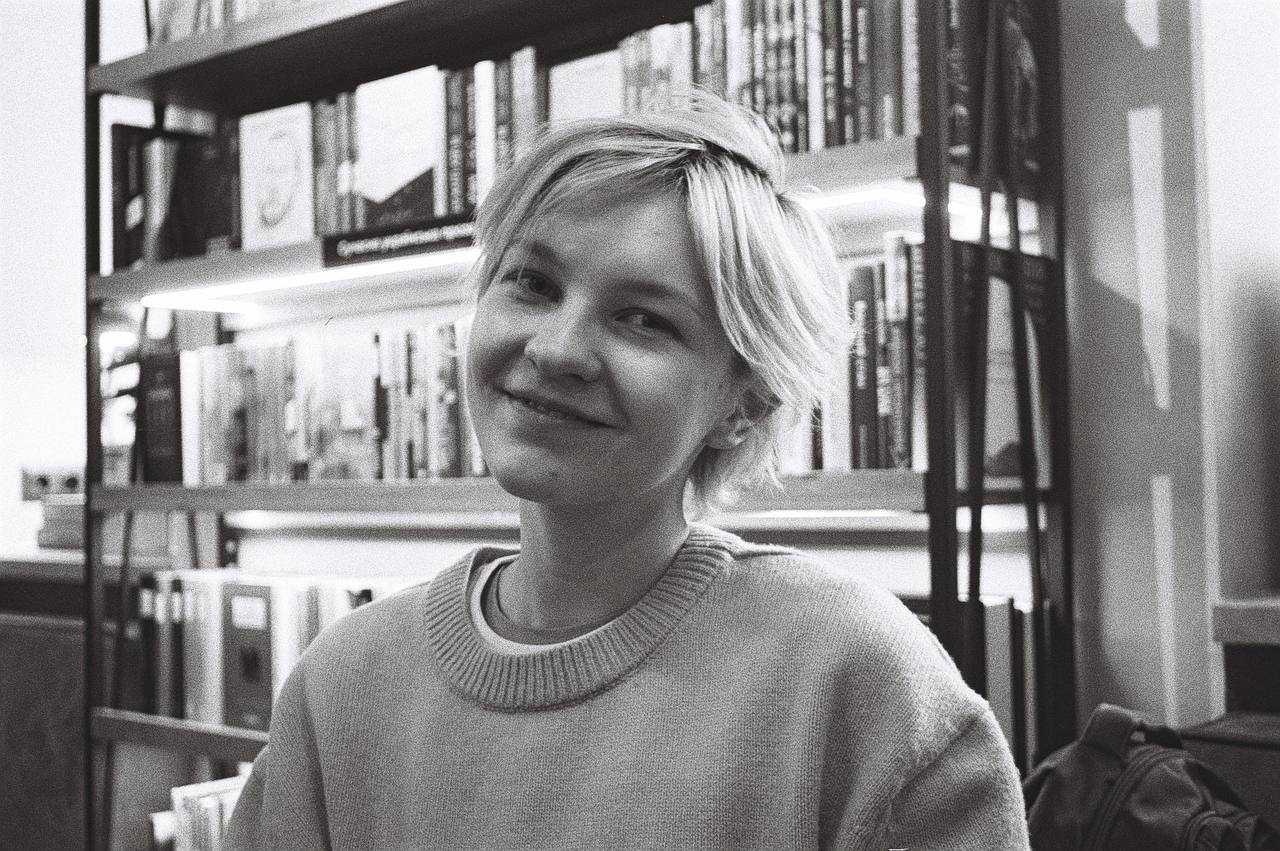At about 10:30 on the morning of July 8, just minutes before a Russian missile slammed into Kyiv’s main hospital for children, 4-year-old Dima Dorontsov was waiting to receive his final dose of chemotherapy at the oncology department with his mother Viktoria Zavoloka alongside.
He’s spent much of his life in hospitals. After almost two years of treating abdominal cancer at the modern Okhmatdyt hospital, he called it home. Most of the about 15 other children around him were already connected to their drug dispensers, slowly releasing lifesaving chemicals into their blood.
That’s when they heard the first distant sound of an explosion from Russia’s latest massive barrage of missile strikes targeting Kyiv and other Ukrainian cities that killed 33 and injured 121, Zavoloka told the Kyiv Independent. Then, she said, they heard a closer boom that set off car alarms nearby.
Another hit nearby sent a shudder through the windows just after nurses asked the parents to dress up the kids who were still in morning shorts and pajamas. Dima and other patients who were able to walk were moving to the corridors with their caretakers.
“After that, the department chief only managed to say – ‘let’s unplug the kids and move to the shelter’ – and the main hit happened,” Zavoloka said.
“Everything shook. Children started to scream. Some started to cry. The windows were blown out,” she said.
While the nurses rushed to unplug all the children from drug dispensers, Zavoloka grabbed some water for Dima, his documents, and two tiny blankets. They took the stairs descending to the underground floor with the other patients. Zavoloka remembers how scary it was to see shattered glass and smoke and to hear the sound of sirens.
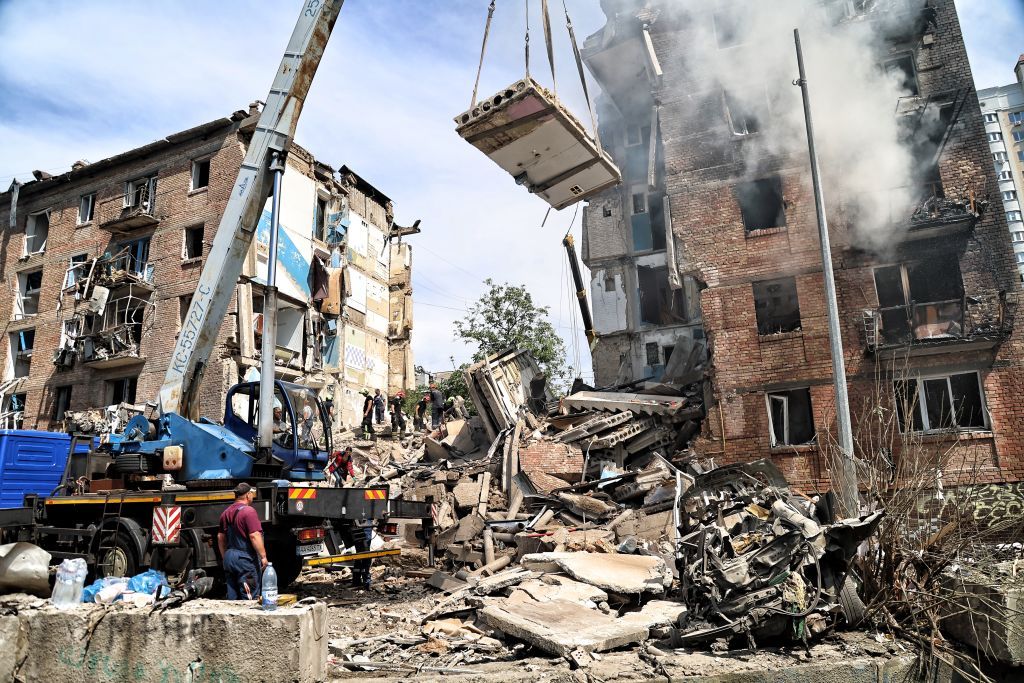
“It was dark, stuffy, there was dust all over,” she said. But the scariest thing for her was the blood she saw on the floor as they walked downstairs.
”You could see that someone had walked there bleeding, and people’s footsteps had smudged the blood,” she said.
Downstairs, over a hundred people were packed in an underground part of the hospital. Frightened children were crying alongside caretakers, doctors, nurses, and visitors. It was hard to breathe through the smoke as a female voice kept alarming them over loudspeakers: “Attention, a fire has started in the building.”
“I could see the fear in Dima’s eyes, but he was behaving so well, didn’t cry,” Zavoloka said.
Children treated for cancer are normally required to avoid contact with other people, as their immune system is severely weakened by treatment. With the exception of immobile children, who Zavoloka believes were carried directly outside after the strike, most of the cancer patients gathered in the underground corridor, exposed to more human contact than many of them have seen in months.
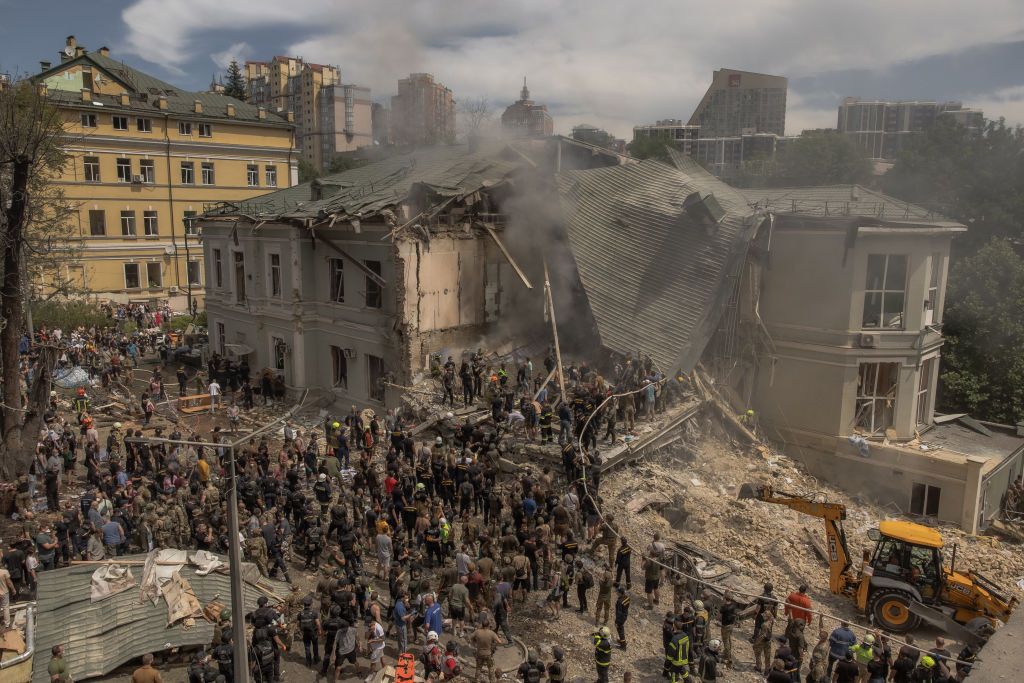
Fearing that waiting for another possible strike in a crowd would be more dangerous for children than going outside, parents and nurses of the cancer ward decided to try moving somewhere else.
It was only minutes later as they sat outside along the walls of the hospital with other patients seeing many ambulances, police, and firefighters rushing past them to a large column of smoke that Zavoloka began to grasp what had happened.
“First, we all thought that the rocket was intercepted, and the debris fell somewhere on the (hospital) territory,” she said. Once outside, as their mobile phones reconnected with telecommunication networks, cell phones all around her started “ringing like crazy.”
Soon afterward, the children undergoing cancer treatment were guided to a recently built bomb shelter.
“There, you’re starting to relax, trying not to cry, and replying to all the messages,” Zavoloka said.
The air raid alarm had ended by then. Some parents went back to the cancer ward to grab the essentials for the kids like phones and medicine.
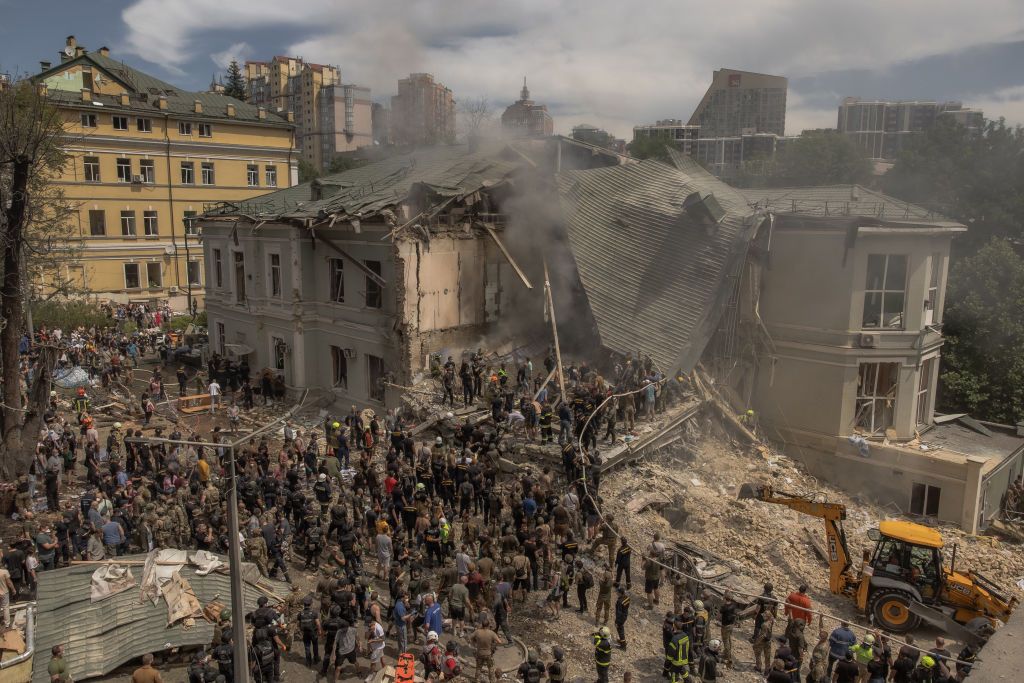
Zavoloka took the task of wiping the blood from the leg of a girl named Kira whose mother had gone back to grab her medication. Kira was one of the weaker patients in the ward, wounded by the window glass shards at her bed as her doctor was disconnecting her IV drip at the moment of impact.
“You’re sitting by this child, wiping her blood and thinking: ‘Why? Why did it have to happen to our children, who are fighting for their lives every day anyway?” Zavoloka said.
Although she wiped her hands afterward, Zavoloka said that the smell of blood was stuck in her nose until she came back home with Dima late in the evening.
But some of the Okhmatdyt patients like Dima and Kira, who were in the middle of a complex treatment, couldn’t simply evacuate from the most advanced children's hospital in Ukraine, even after it was bombed by Russia, for fear of the rapid deterioration of their condition without proper medication.
This is why the doctors and nurses scrambled through the smoke and dust around the hospital's surviving facilities to find the most essential drugs and medical equipment. One by one, they hauled the items to the shelter and began connecting Kira and other critical patients to drug dispensers.
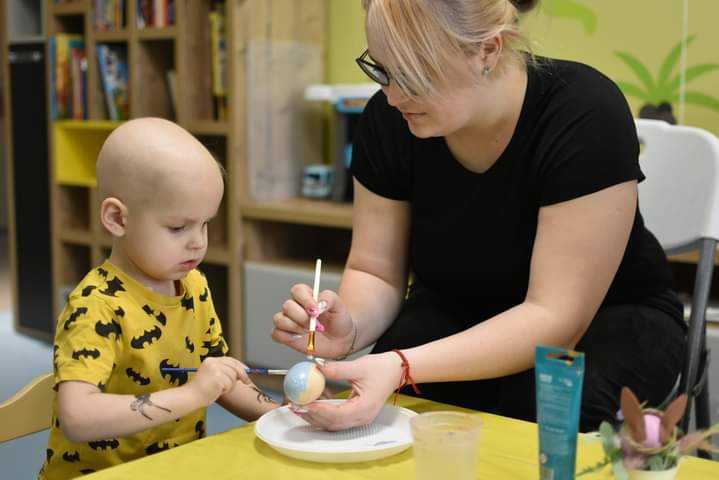
At the time, Zavoloka said she and other parents still hoped to return to the ward soon.
“We hadn’t seen the damage with our own eyes by then, and didn’t know that half of the toxicology building was blown apart, along with the windows all around,” she said.
When they started getting internet connection on their cell phones again, they learned the extent of the damage from pictures on Telegram and Ukrainian news outlets. In contrast to an older building of the hospital which partially collapsed, the new building with the cancer department suffered broken windows and damaged to the facade, but its structure remained intact.
Luckily for Dima, who was also connected to the drug dispenser at the shelter after the strike to receive his last dose of chemicals in the current round of treatment, he was allowed to go home afterward.
Around 4 p.m. that day, Dima and his mother were picked up by Dima’s father who drove for hours in a neighbor’s car from their village in Zhytomyr Oblast.
Dima was among 465 children who were temporarily discharged from Okhmatdyt. According to a statement by Ukraine’s Health Ministry, 94 children were urgently transferred to other hospitals in Kyiv in the aftermath of the attack. Another 68 patients stayed at Okhmatdyt for further treatment.
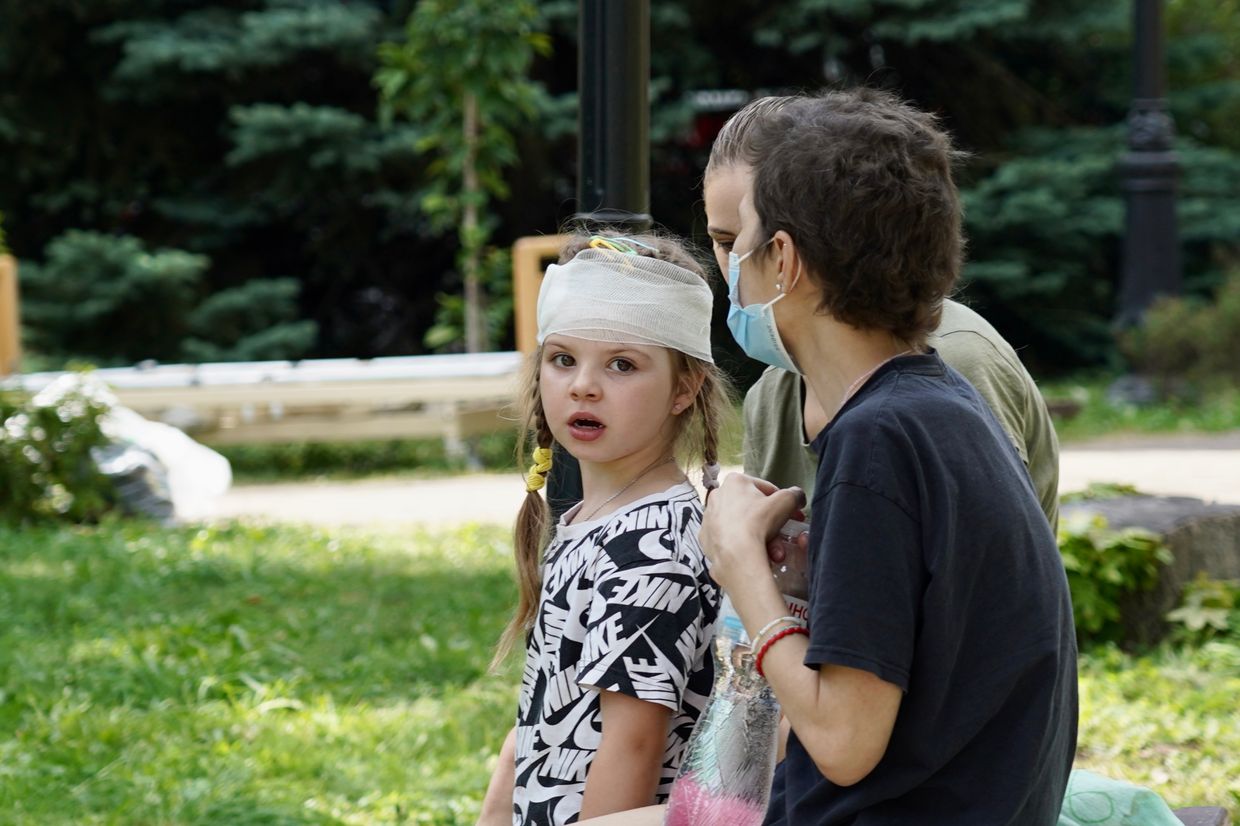
On July 10, one boy died at one of Kyiv’s hospitals after being evacuated from Okhmatdyt’s intensive care unit, according to Ukraine’s Health Minister Viktor Lyashko.
Days later, in the comfort of their home, gradually coming to terms with the shocking experience, Zavoloka is anxiously looking for options to continue Dima’s treatment, like many other parents of Okhmatdyt patients.
“It’s unclear when Okhmatdyt will be restored,” she told the Kyiv Independent in a phone interview as Dima’s cheerful shouts sounded in the background.
“He might start feeling bad next Monday, and maybe we need to find where to treat him ourselves,” she said.
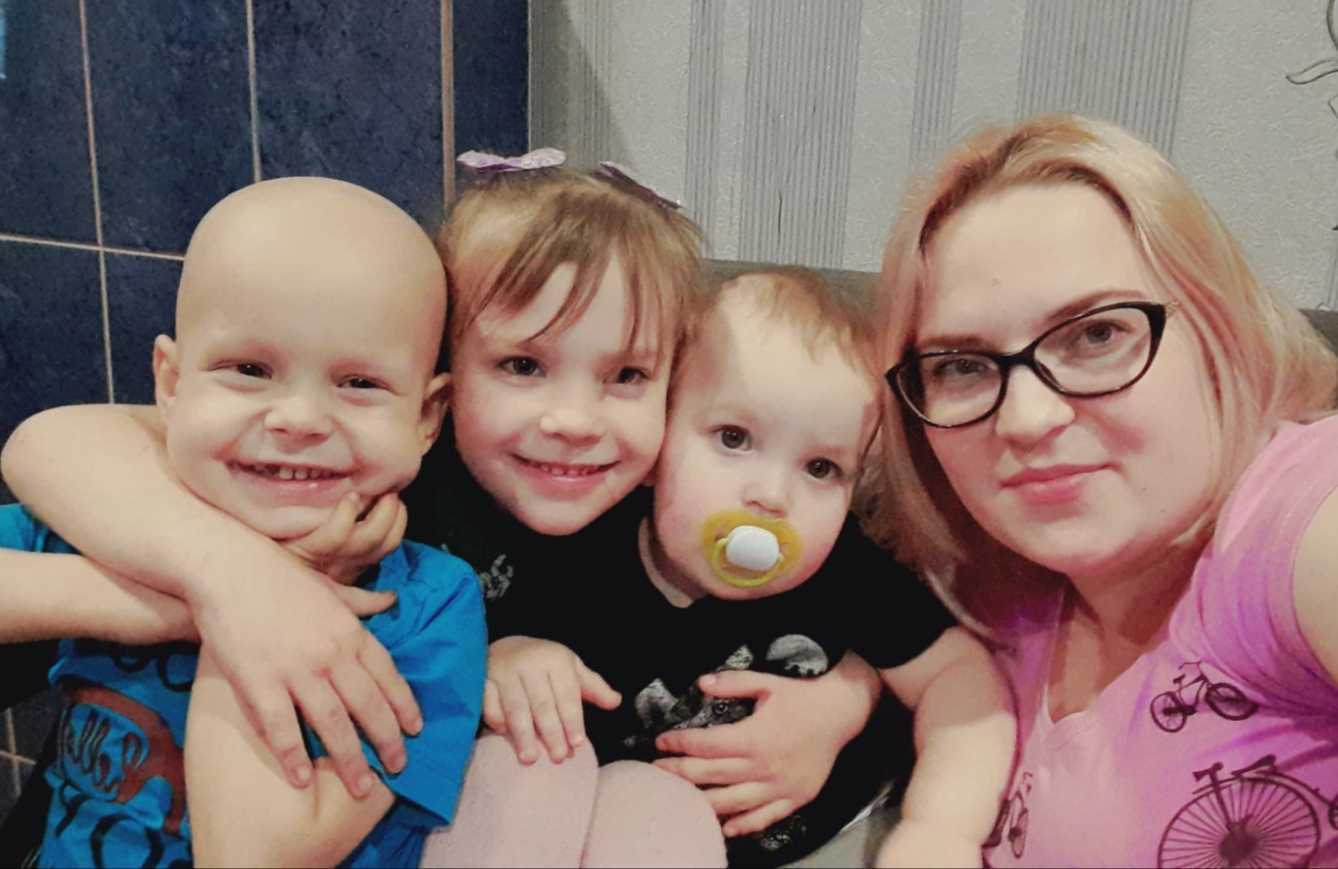
Zavoloka was contacted by the Ukrainian charity foundation Tabletochki which consistently provided expensive medications for Dima, as well as many other children with cancer treated at Okhmatdyt.
“We continue to help them as usual,” said Yuliya Nohovitsyna, the foundation’s representative. “As before, we purchase unavailable medicines, pay for diagnostic tests, buy special nutrition, and accommodate families from other cities in rented apartments.”
As she said in a statement for the Kyiv Independent, the foundation is in contact with Okhmatdyt doctors, other hospitals that are now hosting their patients, and the patient’s parents about the opportunity to evacuate the children abroad for further treatment.
Requests from parents for treatment abroad for their children through the SAFER Ukraine Initiative have spiked in recent days, according to Nohovitsyna.
But Zavoloka hopes to find opportunities to continue treating Dima in Ukraine, where he’s been happily playing with his older sister and younger brother since returning home after the attack, telling his relatives that he “saw the blood and the rocket.”
“It appears that he was not affected by it, but he understands and remembers everything. Now he’s overjoyed that the doctor let him go home and is distracted by it,” Zavoloka said.
But between calls with Dima’s doctor, communicating with the parents of other children being treated for cancer, and the responsibility of caring for all of her three kids, Zavoloka keeps thinking back to the moment the Russian missile slammed into the Okhmatdyt hospital compound.
“I’m constantly wondering what could have happened if that missile had hit just 50 meters closer to the new building,” she said, referring to the hospital’s main complex.
“Would we be lucky then? Could Dima even walk after that and would my other children ever see their mother again?”
